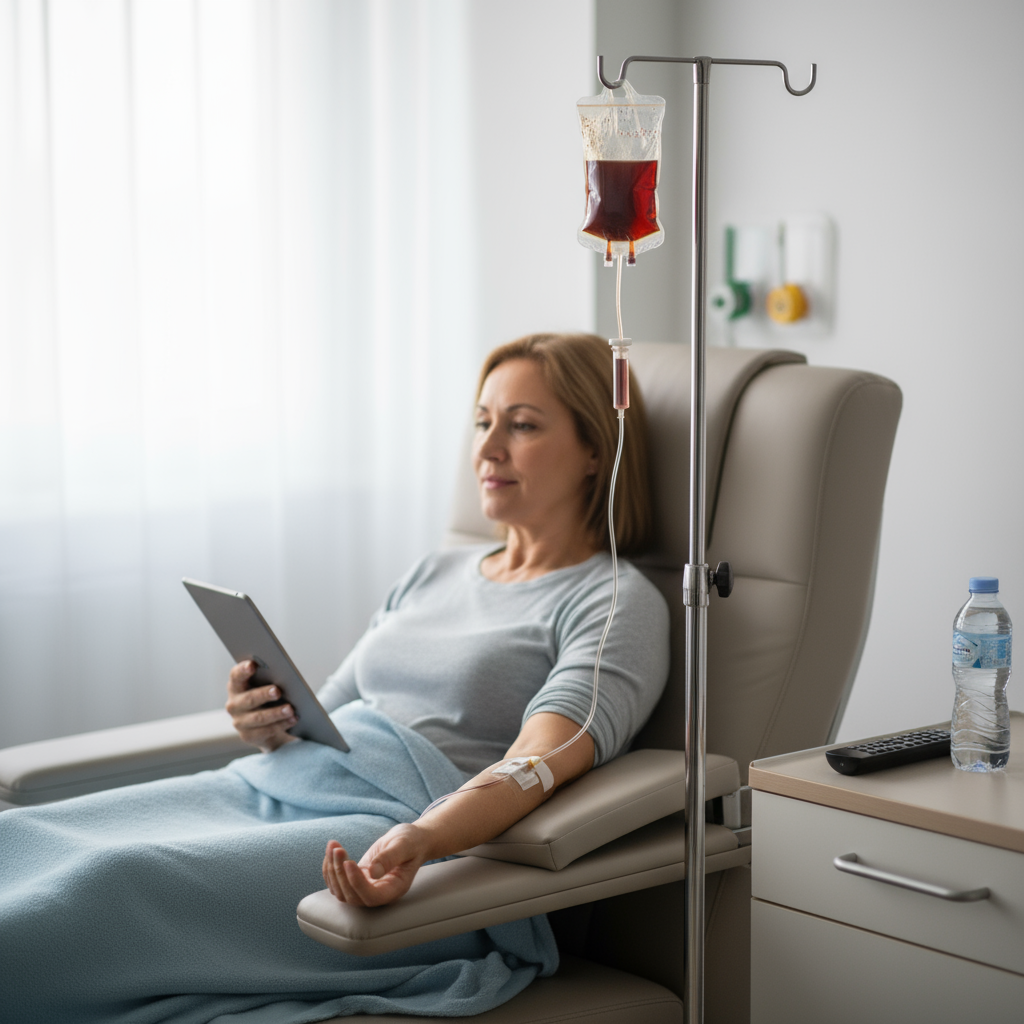
Anemia is a common and serious complication of Chronic Kidney Disease (CKD), and it can have a significant impact on a patient’s quality of life. Unlike other forms of anemia, the type linked to kidney disease is caused by the kidneys’ inability to produce a key hormone. Understanding this link is crucial for managing the condition effectively.
What is Anemia in CKD?
Anemia is a condition where your blood doesn’t have enough healthy red blood cells to carry oxygen throughout your body. Red blood cells contain a protein called hemoglobin, which is responsible for this vital task. When you have anemia, your organs and tissues don’t get the oxygen they need, leading to a range of symptoms.
For people with CKD, the main cause of anemia is a lack of a hormone called erythropoietin, or EPO. Healthy kidneys produce EPO, which signals the bone marrow—the spongy tissue inside your bones—to make more red blood cells. When kidneys are damaged, as in CKD, they produce less EPO, and your body can’t make enough red blood cells. It’s like a factory running low on a crucial ingredient; production slows down.
Anemia in CKD can also be made worse by other factors, such as:
- Iron deficiency: Your body needs iron to make hemoglobin.
- Chronic inflammation: The ongoing inflammation in CKD can make it harder for your body to use the iron it has.
- Nutritional deficiencies: A lack of vitamins like B12 and folate can also contribute to anemia.
Recognizing the Symptoms
Anemia in CKD often develops slowly, and in the early stages, you may not notice any symptoms at all. However, as the condition worsens, you might experience:
- Feeling tired and weak all the time
- Shortness of breath, even with light activity
- Pale skin
- Dizziness or headaches
- Difficulty concentrating
- Feeling cold, especially in your hands and feet
- Chest pain or a rapid heartbeat
If you’re a CKD patient and notice these symptoms, it’s important to talk to your doctor. Anemia can put extra strain on your heart, so timely diagnosis and treatment are essential.
Treatment and Management
The good news is that anemia in CKD is a manageable condition. The primary goals of treatment are to increase your red blood cell count and get your hemoglobin levels back to a healthy range.
- Iron supplements: Your doctor will likely check your iron levels and may prescribe iron supplements, either as a pill or through an intravenous (IV) infusion. Having enough iron is vital for the EPO treatment to work effectively.
- Erythropoiesis-Stimulating Agents (ESAs): These are medications that act like the natural EPO hormone. They are given as injections and tell your bone marrow to produce more red blood cells. ESAs can significantly improve energy levels and reduce the need for blood transfusions.
- Diet and Lifestyle: While they can’t cure anemia on their own, a balanced diet and regular exercise, as advised by your doctor, can help manage your overall health.
A Nephrologist’s Perspective
Treating anemia in CKD requires a specialized approach, and that’s where a nephrologist comes in. A nephrologist is a kidney specialist who can diagnose the underlying causes and tailor a treatment plan to your specific needs.
In Delhi, for example, a renowned expert in this field is Dr. Vinant Bhargava, a Consultant Nephrologist at Sir Ganga Ram Hospital. With over 20 years of experience, Dr. Bhargava specializes in a wide range of kidney-related issues, including the comprehensive management of CKD and its complications like anemia.
He emphasizes the importance of a holistic approach, which includes not just medication but also lifestyle adjustments and regular monitoring. “Early detection and proper management of anemia are crucial for improving a CKD patient’s quality of life and preventing serious heart problems,” says Dr. Bhargava. “It’s not just about a single treatment; it’s about a complete care plan that addresses the patient’s overall health.”
By working closely with a nephrologist in Delhi, you can ensure that your anemia is properly diagnosed and treated, helping you feel better and live a more active life, even with CKD.

